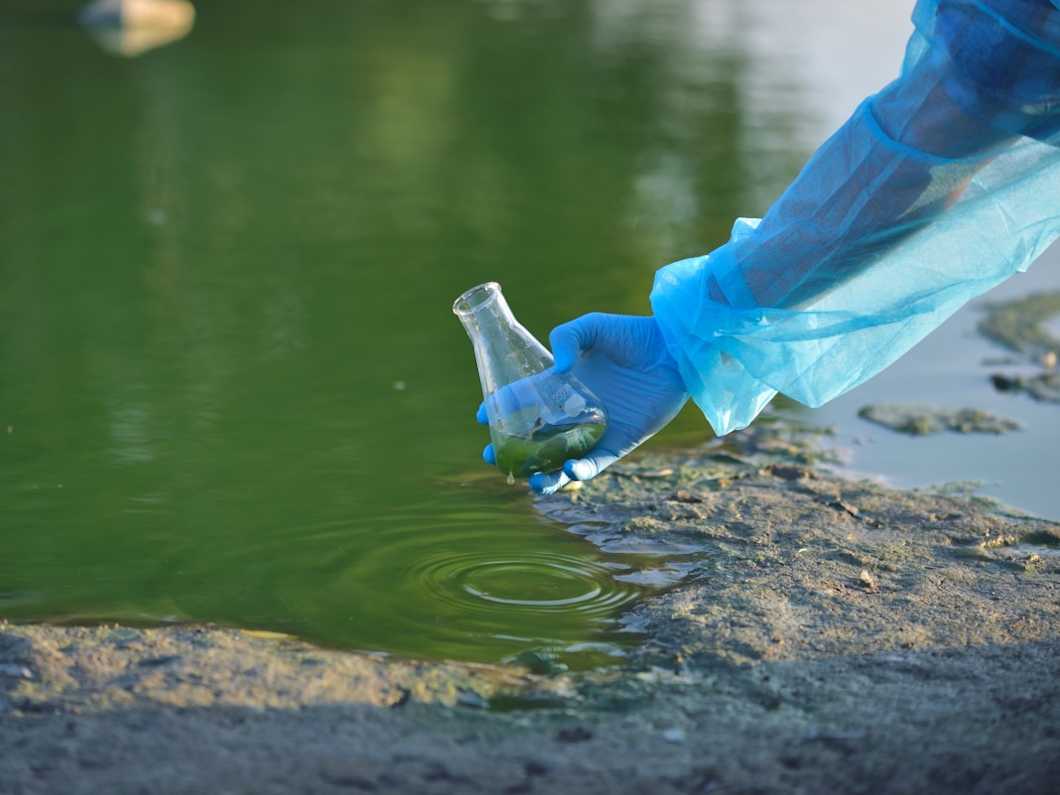LC-MS/MS analysis
Liquid chromatography-tandem mass spectrometry (LC-MS/MS) is a highly sensitive analysis technique that detects target analytes in trace quantities. Popular applications include targeted PFAS analysis and food contaminant detection.

Some of our LC-MS/MS services
PFAS in plastic, paper, and other solid materials (165 compounds)
PFAS in drinking water and natural water
Beeswax wraps - compliance testing package for Reg. (EC) 1935/2004
Chlorate and perchlorate determination
Tropane alkaloids determination
Prices excluding VAT.
What is LC-MS/MS analysis used for?
The excellent detection capabilities of LC-MS/MS give it applications in multiple fields. Measurlabs offers a range of analysis services with the technique, including the following:
Detection and measurement of per- and polyfluoroalkyl substances (PFAS) in food, water, consumer goods, and environmental samples. Testing can be based on EPA Method 1633, which is emerging as the go-to method for PFAS screening in the US.
Food contaminant screening, including for plant alkaloids, acrylamide, and pesticides.
Analysis of active ingredients and impurities in pharmaceuticals (e.g. nitrosamine impurity analysis).
Testing nutritional supplements for the presence of unauthorized substances.
These are just some examples of popular LC-MS/MS applications. Do not hesitate to contact our chemical analysis experts to discuss the method's suitability for your project.
How does LC-MS/MS work?
A typical triple quadrupole (QqQ) LC-MS/MS setup initially uses liquid chromatography to separate a sample into its components. The separated components are then ionized and introduced into the first mass spectrometer, which selects ions based on their mass-to-charge ratio. The selected ions are fragmented in a collision cell, and the resulting fragments are passed through a second mass spectrometer before being detected.
Sample requirements and preparation
Before injection into the LC-MS/MS system, samples must be in a diluted liquid or solution form. This often involves dilution with standard solvents like water or acetonitrile. Sample preparation may also include steps to extract, purify, and concentrate analytes and remove interferences. Depending on the target analytes, one option is to use the QuEChERS method, which is used especially for pesticide residue and mycotoxin analysis.
Advantages and limitations of LC-MS/MS analysis
LC-MS/MS offers greater separation of complex samples than conventional LC-MS, allowing the detection of target analytes with a higher degree of specificity. Furthermore, the fragmentation provided by the tandem mass spectrometry allows for the characterization of complex organic molecules and distinguishing them from other molecules with similar mass spectra.
The main drawback of LC-MS/MS is its relatively low throughput. Data analysis and characterization, particularly in the case of very complex mixtures, can also be time-consuming.
Need LC-MS/MS analyses?
Measurlabs offers laboratory testing with LC-MS/MS and conventional LC-MS methods. Whether it’s just a few samples or a large series, we offer competitive pricing and deliver reliable results quickly. Should you need assistance with method selection, our testing experts are always here to help craft testing plans and offer their best recommendations. More than 700 companies have chosen Measurlabs for accurate results and dependable service. Contact us through the form below to receive a quote and experience our service level for yourself.
Suitable sample matrices
- Complex organic mixtures
- Water, soil, and sediment
- Biological samples
- Pharmaceuticals
- Food products
Ideal uses of LC-MS/MS
- Characterizing complex mixtures
- Detecting contaminants in food, pharmaceuticals, and environmental samples
- PFAS testing
Ask for an offer
Fill in the form, and we'll reply in one business day.
Have questions or need help? Email us at info@measurlabs.com or call our sales team.
Frequently asked questions
Measurlabs offers a variety of laboratory analyses for product developers and quality managers. We perform some of the analyses in our own lab, but mostly we outsource them to carefully selected partner laboratories. This way we can send each sample to the lab that is best suited for the purpose, and offer high-quality analyses with more than a thousand different methods to our clients.
When you contact us through our contact form or by email, one of our specialists will take ownership of your case and answer your query. You get an offer with all the necessary details about the analysis, and can send your samples to the indicated address. We will then take care of sending your samples to the correct laboratories and write a clear report on the results for you.
Samples are usually delivered to our laboratory via courier. Contact us for further details before sending samples.